What Causes Dandruff : Ever felt that embarrassing moment when white flakes suddenly appear on your dark shirt? You’re not alone. Many Americans struggle with this frustrating scalp condition.
Dandruff affects up to 50% of adults, making it a common issue. Understanding your flaky scalp can help manage and prevent those pesky white flakes.
This guide will cover everything about dandruff. We’ll explore its causes and share prevention strategies. You’ll learn how to regain confidence and scalp health.
Whether you’re dealing with occasional flaking or persistent scalp irritation, we’ve got you covered. Our expert insights will help you tackle dandruff. Get ready to transform your hair care routine and say goodbye to those unwelcome white flakes.
Table of Contents
Understanding Dandruff: An Overview
Dandruff is a common scalp condition that affects millions of people worldwide. It’s not just dry skin; it’s a complex issue. Knowing what causes dandruff helps you find the right treatment.
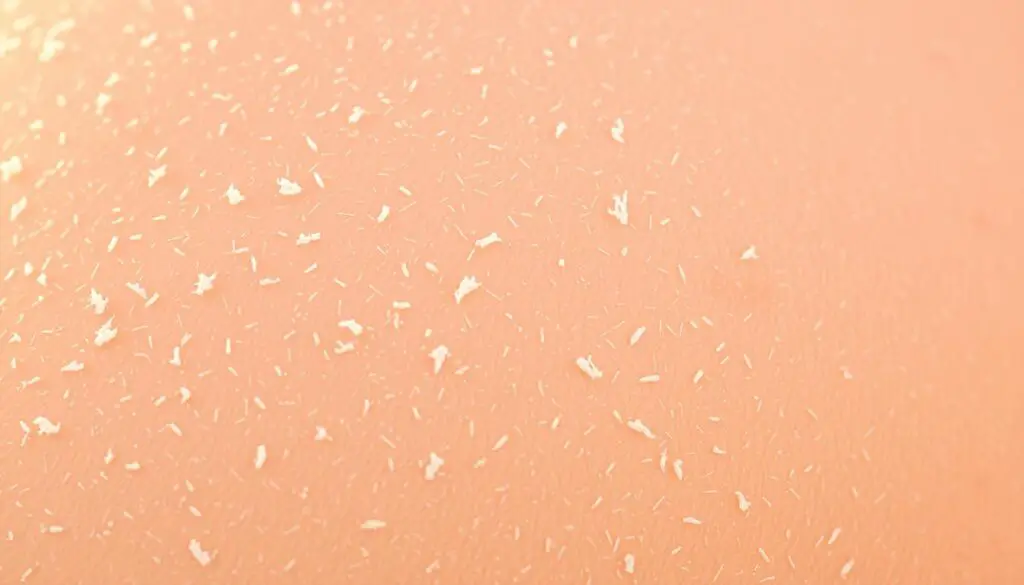
It’s marked by white flakes of dead skin from your scalp. About 50% of adults get dandruff, with men more likely to have it.
What is Dandruff?
Dandruff happens when skin cells on your scalp shed too fast. This leads to visible white flakes. The main cause is often an overgrowth of Malassezia, a fungus on the scalp.
“Dandruff is not just about dry skin – it’s a complex interaction of factors affecting scalp health.” – Dermatology Research Institute
Different Types of Dandruff
Not all dandruff is the same. Each type needs a different treatment:
- Dry Skin-Related Dandruff: Smaller, dry flakes typical in winter
- Oily Skin-Related Dandruff: Larger, greasy flakes
- Fungal Dandruff: Caused by Malassezia overgrowth
- Disease-Related Dandruff: Associated with skin conditions
| Dandruff Type | Key Characteristics | Recommended Treatment |
|---|---|---|
| Dry Scalp Dandruff | Small, white flakes | Moisturizing shampoos |
| Seborrheic Dermatitis | Oily, red, scaly skin | Medicated antifungal shampoos |
| Fungal Dandruff | Excessive yeast growth | Zinc pyrithione treatments |
Knowing your dandruff type is key to choosing the right treatment. A dermatologist can help find the best scalp care for you.
Common Causes of Dandruff
Knowing what causes dandruff helps you manage it better. Dandruff affects about 50% of adults worldwide. Many factors can lead to it.
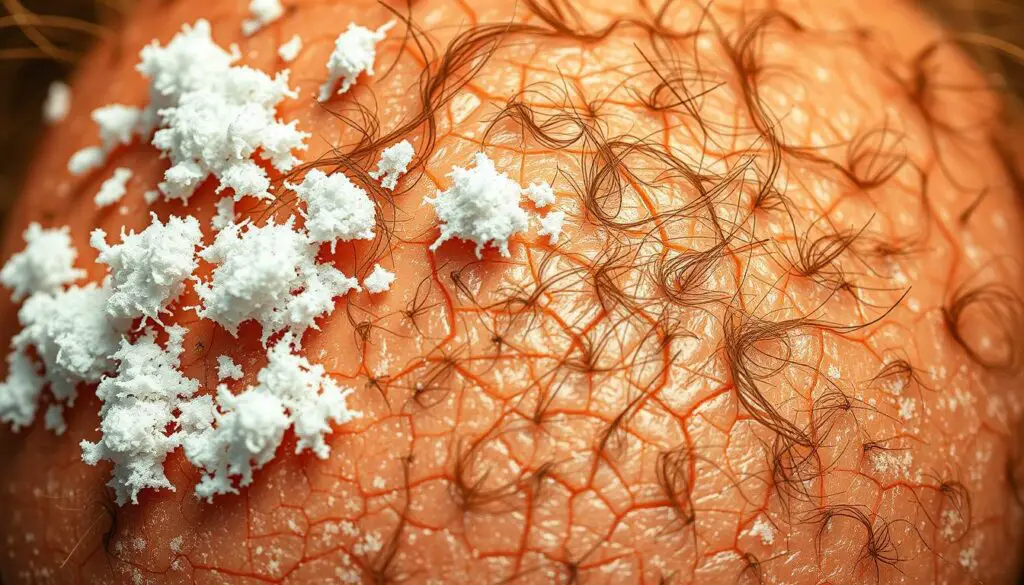
Several things can make your scalp flaky. These elements upset your scalp’s natural balance:
Dry Skin and Scalp Conditions
Your scalp’s health is key to avoiding dandruff. Dry skin can cause small, white flakes. These flakes fall off easily.
In fall and winter, when it’s colder, dandruff gets worse. This is because the air is drier.
Oily Scalp Dynamics
Too much oil on your scalp can lead to dandruff. Men often have oilier skin, making them more likely to get dandruff.
- Males are more prone to dandruff
- Increased oil production triggers flaking
- Puberty marks the onset of potential dandruff issues
Malassezia Yeast Overgrowth
A tiny fungus called Malassezia lives on your scalp. If it grows too much, it can cause inflammation. This makes your skin cells turn over fast, leading to flaking.
| Dandruff Risk Factors | Impact Level |
|---|---|
| Oily Skin | High |
| Stress Levels | Moderate |
| Specific Medical Conditions | Variable |
Underlying Skin Conditions
Dermatological issues like seborrheic dermatitis and psoriasis can cause dandruff. These conditions make flaky scalp more common.
“Understanding your scalp’s unique characteristics is the first step in managing dandruff effectively.” – Dermatology Experts
By knowing what causes dandruff, you can take steps to keep your scalp healthy. This helps reduce flakes.
Lifestyle Factors Contributing to Dandruff
Looking into what causes dandruff means more than just the symptoms. Your daily habits and lifestyle choices are key to scalp health. They can greatly affect dandruff.
Stress and Its Impact on Scalp Health
Stress can secretly trigger dandruff. When stressed, your body makes more cortisol. This hormone can upset your skin’s balance.
This imbalance may lead to more sebum and weaken your immune system. It creates a perfect spot for Malassezia fungus to grow.
“Your mental health directly influences your scalp condition” – Dermatology Research Insights
Nutrition’s Role in Scalp Treatment
Your diet is crucial in fighting dandruff. Lack of certain nutrients can make scalp issues worse. Eating well, with the right vitamins, can help your scalp and reduce dandruff.
- Zinc: Supports skin repair
- Vitamin B: Regulates oil production
- Omega-3 fatty acids: Reduces inflammation
Hair Care Practices
Your hair care routine affects how well you treat your scalp. Washing too much, using harsh products, or ignoring scalp care can make dandruff worse.
| Hair Care Practice | Dandruff Impact |
|---|---|
| Overwashing | Strips natural oils, increases scalp irritation |
| Infrequent washing | Allows oil and skin cell buildup |
| Using wrong shampoo | Can disrupt scalp microbiome |
Pro tip: Choose a gentle, pH-balanced shampoo and avoid excessive heat styling to maintain optimal scalp health.
The Role of Scalp Health in Dandruff
Your scalp is more than just the base for your hair. It’s a complex system that helps prevent dandruff and keeps your hair healthy. Knowing how scalp conditions work is key to treating them well.
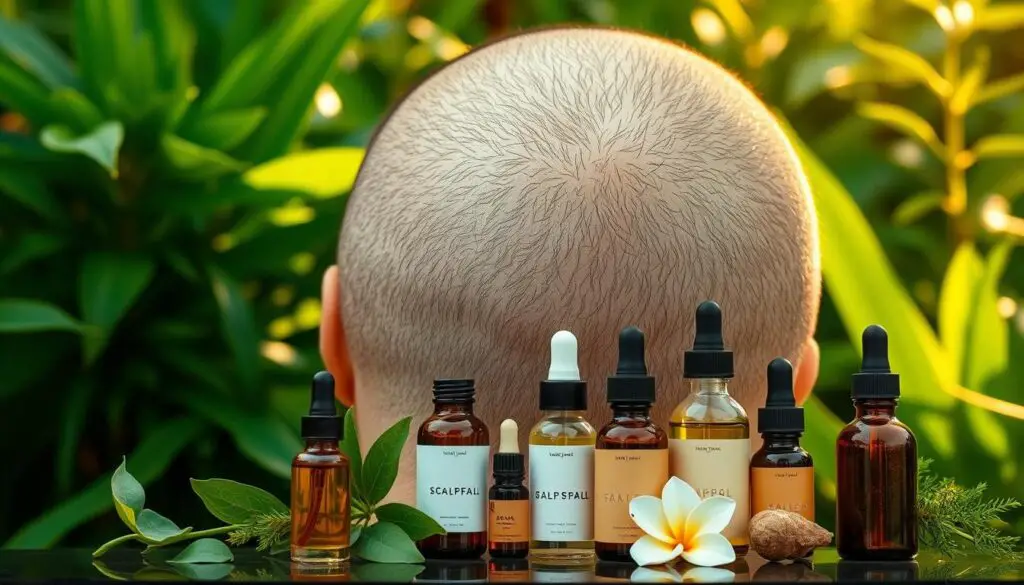
A healthy scalp microbiome is vital for fighting flaky scalp problems. The right mix of microorganisms affects your hair’s look and health. If this balance is off, you might get seborrheic dermatitis, which helps dandruff grow.
Understanding Scalp Microbiome
Scalp health depends on several things:
- Sebum production levels
- Presence of Malassezia yeast
- Environmental exposures
- Individual skin characteristics
Common Scalp Conditions Linked to Dandruff
Some scalp issues make dandruff worse. Seborrheic dermatitis leads to more skin cell turnover and flaking. It’s linked to too much Malassezia yeast, which loves sebum.
“Maintaining scalp health is not just about appearance, but about creating an optimal environment for hair growth and wellness.”
To tackle a flaky scalp, try these treatments:
- Use targeted antifungal shampoos
- Maintain consistent hair hygiene
- Monitor sebum production
- Reduce environmental stressors
Understanding your scalp’s microbiome and dandruff is crucial. It helps you create a hair care plan that works for you.
Symptoms of Dandruff
Dandruff is a common scalp condition that can cause discomfort and embarrassment. Knowing the symptoms helps you tackle this issue effectively.
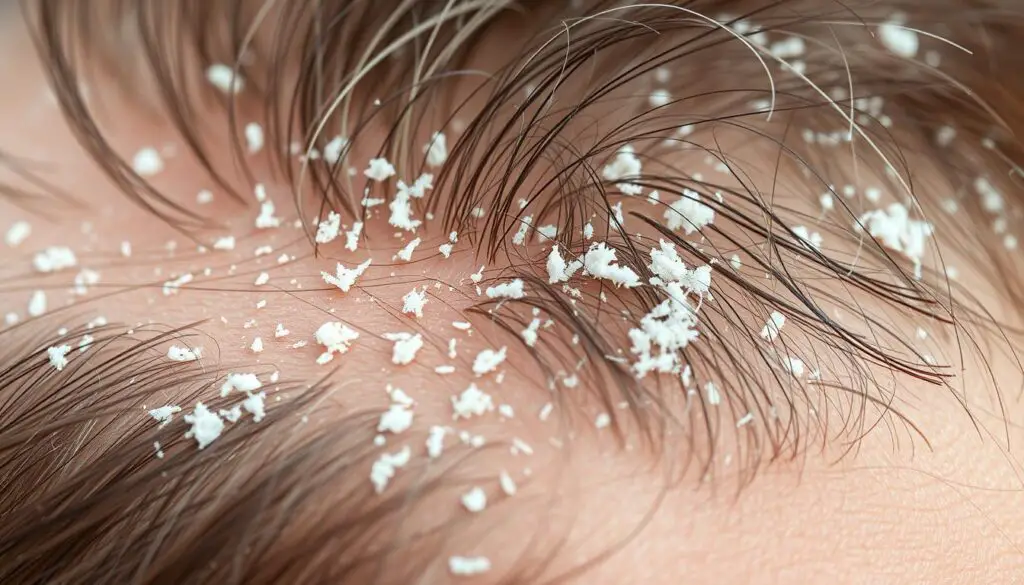
Identifying a flaky scalp means understanding the signs of dandruff. Symptoms can be mild or severe, affecting your scalp’s health and look.
Identifying Itching and Discomfort
Dandruff shows several distinct symptoms:
- Persistent scalp itching
- Noticeable white or yellowish flakes
- Skin irritation and redness
- Patches of dry or greasy skin
Understanding Flaking and Scaling
The visual signs of dandruff are clear. You might see:
- White flakes on your shoulders or clothing
- Visible scaling on the scalp
- Increased skin shedding
“Dandruff affects approximately 50% of the global adult population, making it a widespread scalp condition.”
Statistics show that males are more likely to get dandruff, starting in puberty. Interestingly, symptoms can get worse in fall and winter when humidity drops.
Symptoms can vary in severity. Some people have mild flaking, while others face intense scalp irritation. If your symptoms don’t go away or get worse, see a dermatologist.
How to Diagnose Dandruff
Diagnosing dandruff is easy and helps you take care of your scalp. Knowing the signs and symptoms is key. This helps you figure out if you have dandruff or something more serious.
Self-Examination Techniques
Start by checking your scalp closely. Look for these signs:
- White or yellowish flakes on your shoulders or clothing
- Itchy scalp with visible skin scaling
- Redness or inflammation of the scalp skin
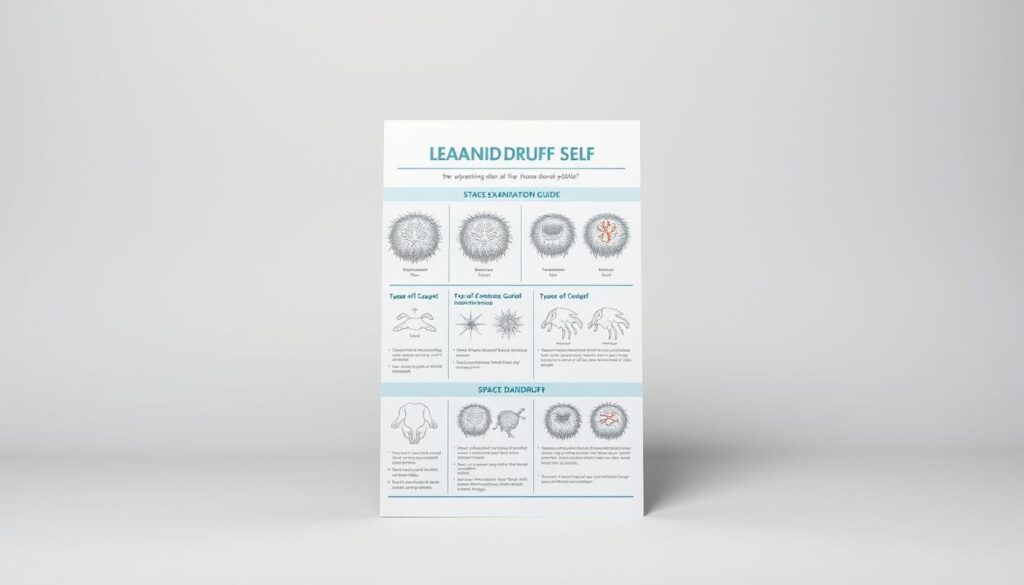
Understanding your symptoms is the first step in treating your scalp. Not all flaking is dandruff. Dry scalp and seborrheic dermatitis can look similar. So, it’s important to observe carefully.
When to Consult a Dermatologist
While you can treat most dandruff at home, some cases need a doctor:
| Warning Signs | Recommended Action |
|---|---|
| Persistent flaking after 1 month of treatment | Schedule dermatologist consultation |
| Severe scalp inflammation | Immediate professional evaluation |
| Signs of infection | Seek medical advice promptly |
“Early detection and proper scalp treatment can prevent more serious skin conditions.” – Dermatology Experts
Studies show that almost 50% of adults get dandruff at some point. Knowing your symptoms and when to see a doctor is crucial for good scalp health.
Effective Home Remedies for Dandruff
Dealing with dandruff can be frustrating. But, natural remedies offer promising solutions. By exploring home treatments, you can soothe and heal your scalp without commercial products.
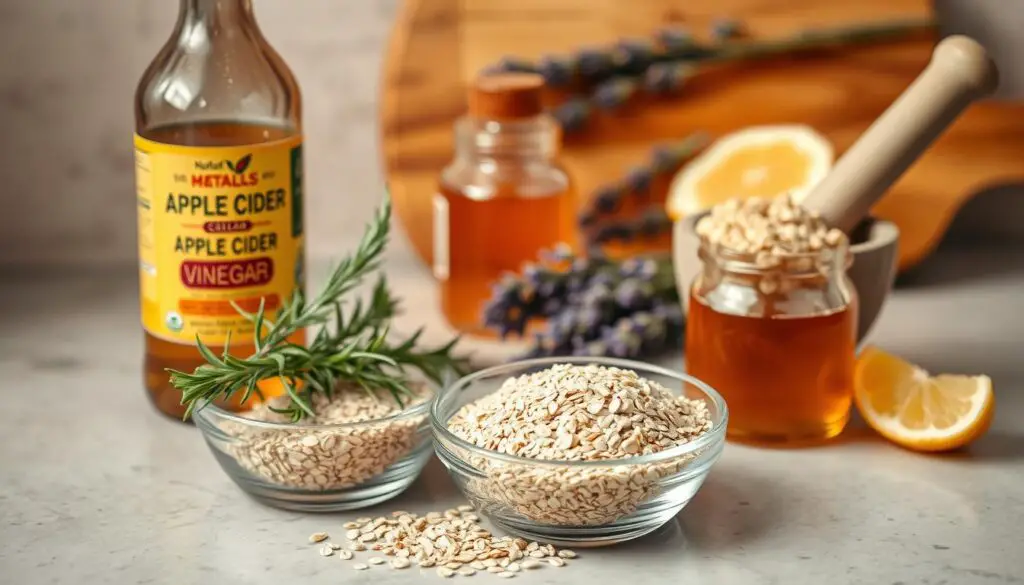
Natural oils and plant-based treatments are great for fighting dandruff. Research shows they can reduce symptoms by up to 70% with regular use.
Tea Tree Oil: A Powerful Scalp Treatment
Tea tree oil is an exceptional scalp treatment for dandruff. It has strong antifungal properties. These can control the Malassezia fungus that causes many dandruff cases.
- Dilute tea tree oil with a carrier oil before application
- Massage gently into the scalp
- Leave for 30 minutes before washing
- Use 2-3 times per week for best results
Natural Oils for Scalp Health
Several natural oils can help manage dandruff and promote scalp health. Coconut oil, for example, moisturizes deeply and fights off scalp infections.
Aloe Vera Gel: Soothing Scalp Relief
Aloe vera gel is great for irritated scalps. Studies show it can help up to 70% of users by soothing and hydrating the scalp.
“Natural remedies can be a game-changer in managing scalp health and reducing dandruff.” – Dermatology Research Institute
Remember, consistency is key when using home remedies for dandruff. While these treatments work well, results can vary. Always test new treatments and see a healthcare professional if symptoms don’t improve.
Over-the-Counter Treatments
Fighting dandruff can be tough, but many effective over-the-counter options are available. Anti-dandruff shampoos are a popular choice for those dealing with flaking and itching.
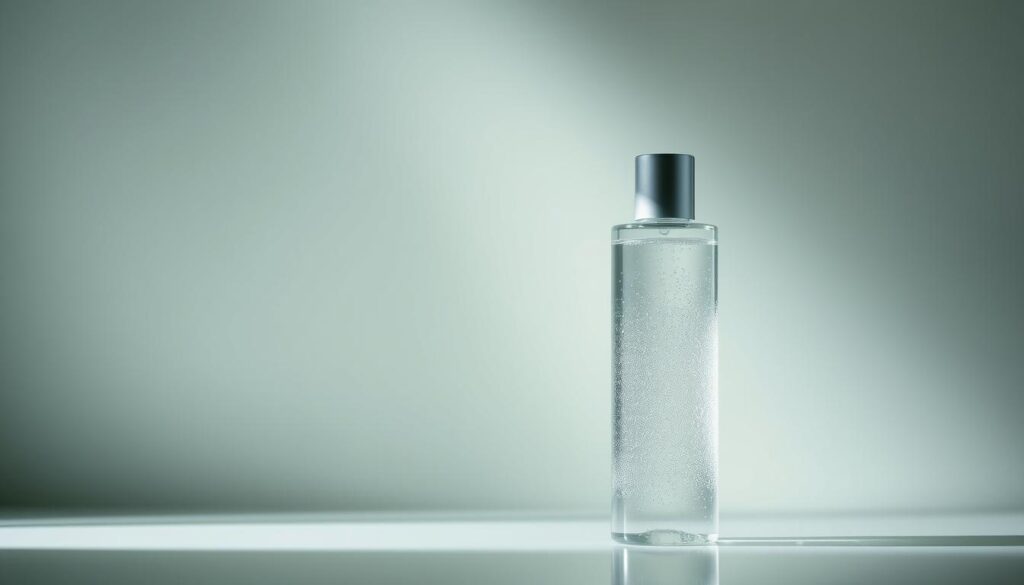
Understanding Anti-Dandruff Shampoo Ingredients
When picking a dandruff shampoo, it’s important to know the key ingredients. Look for these powerful components:
- Zinc pyrithione: Effectively kills bacteria and fungus
- Selenium sulfide: Targets fungal growth and reduces scaling
- Ketoconazole: A strong antifungal agent
- Salicylic acid: Helps reduce scalp scales
- Coal tar: Slows down skin cell shedding
Choosing the Right Scalp Treatment
Different scalp issues need specific treatments. Brands like Head & Shoulders and Selsun Blue offer shampoos with zinc pyrithione for mild to moderate dandruff. For tougher cases, selenium sulfide-based products can offer extra help.
“Finding the right dandruff treatment is about understanding your unique scalp needs” – Dermatology Expert
Effective Application Tips
To get the most out of your dandruff shampoo:
- Use the product consistently
- Massage thoroughly into the scalp
- Leave the shampoo on for 2-3 minutes before rinsing
- Follow the recommended frequency on the product label
Pro tip: Results may take several weeks of regular use to become noticeable.
When to Seek Medical Help
Dandruff can be frustrating, but most cases are manageable with over-the-counter scalp treatments. Knowing when to seek professional help is key to addressing potential health concerns.
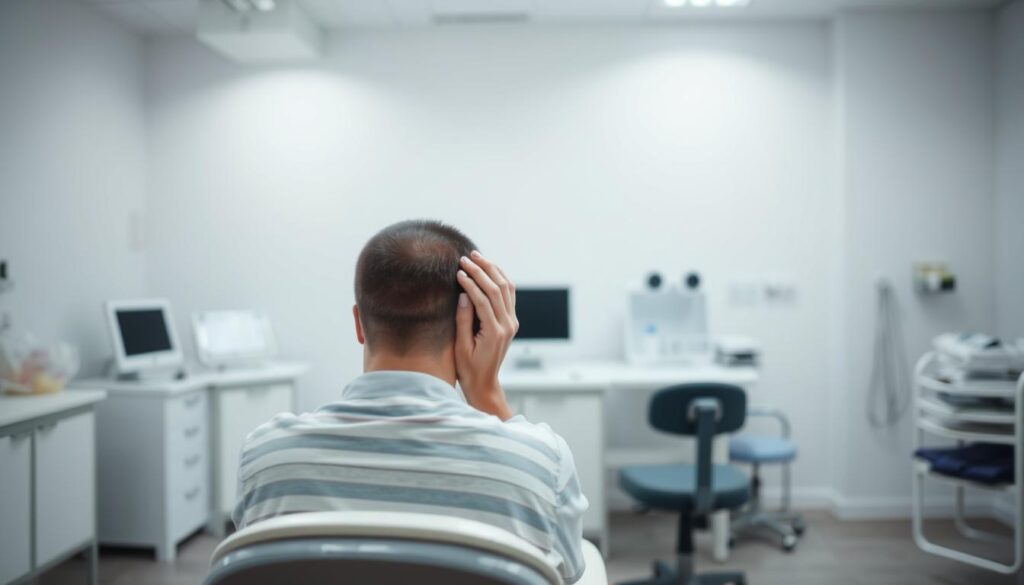
Understanding what causes dandruff goes beyond simple skin flaking. Some situations demand expert medical attention to rule out more serious conditions.
Persistent Dandruff Concerns
If your dandruff persists despite consistent use of anti-dandruff shampoos, it might signal a more complex scalp treatment need. Specific red flags include:
- Continuous scalp irritation lasting more than a month
- Intense itching that disrupts daily activities
- Visible scalp inflammation or redness
- Significant hair loss accompanying dandruff
Signs of an Underlying Condition
Some dandruff symptoms may indicate more serious health issues. Dermatologists recommend professional evaluation if you experience:
- Severe scaling beyond the scalp
- Unexplained skin changes
- Symptoms associated with immune system disorders
“Early detection of scalp conditions can prevent more serious health complications.” – Dermatology Experts
Statistics show that about 20% of adults seek medical help for persistent dandruff. Those with chronic conditions like Parkinson’s disease or HIV are at higher risk of complex scalp issues.
| Condition | Medical Consultation Recommendation |
|---|---|
| Persistent Dandruff | Consult after 4-6 weeks of ineffective treatments |
| Scalp Inflammation | Immediate dermatologist evaluation |
| Immune System Disorders | Specialized scalp treatment required |
Remember, professional medical advice can provide targeted solutions for your specific scalp health needs.
Preventive Measures for Dandruff
To keep your scalp healthy, you need to fight dandruff before it starts. Good anti-dandruff strategies help keep your scalp clean and your hair healthy.
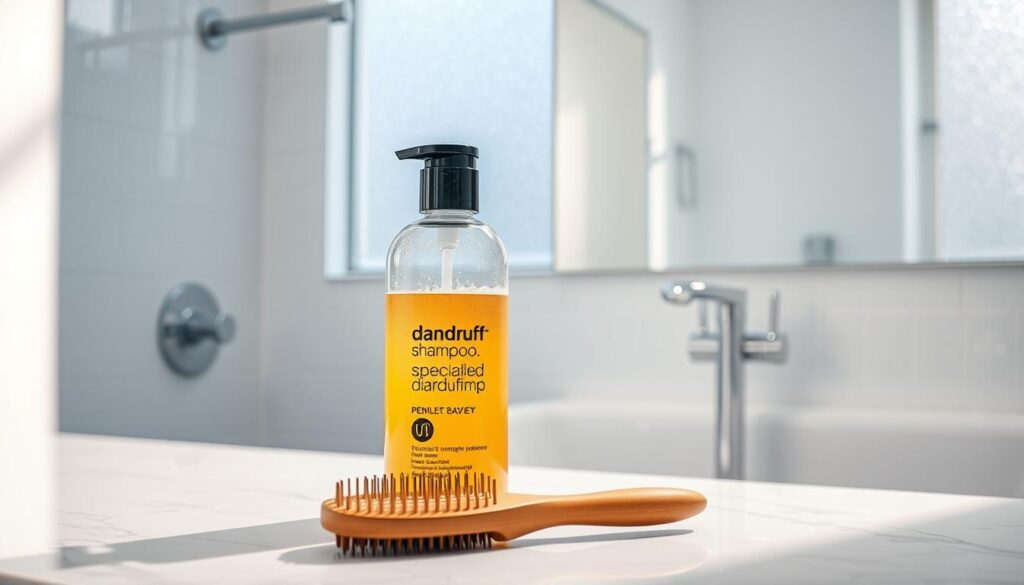
Stopping dandruff means taking care of your scalp in many ways. Studies show that focusing on scalp health can greatly reduce dandruff.
Regular Hair Washing Techniques
Washing your hair often is key to keeping your scalp healthy. Here’s what research says:
- Wash your hair 3-4 times a week for the best scalp health
- Use special anti-dandruff shampoos with important ingredients
- Stick to a regular washing schedule to avoid dandruff coming back
Healthy Lifestyle Choices
Your overall health affects your scalp. Here are some tips:
- Find ways to relax and manage stress
- Eat a diet full of zinc and B vitamins
- Drink plenty of water and use a humidifier in dry months
Proper Hair Care Routine
“Prevention is better than cure” – This saying is true for fighting dandruff.
A good hair care routine can lower your risk of dandruff. Important steps include:
- Keep your scalp safe from harsh weather
- Choose gentle, pH-balanced hair products
- Avoid too much heat styling
- Try natural treatments for your scalp
Tests show that regular care can get rid of dandruff in just 4 weeks. By focusing on your scalp, you can manage and prevent dandruff.
Myths and Misconceptions About Dandruff
Understanding dandruff means knowing what’s real and what’s not. Many myths about this common scalp issue can make treatment harder.
Dandruff affects over 50% of adults worldwide. Let’s look at some common myths about this flaky scalp problem:
- Myth: Dandruff is just dry skin
- Myth: Dandruff only affects people with oily hair
- Myth: Poor hygiene causes dandruff
Debunking the Dry Skin Myth
Dandruff is not just dry skin. There’s a big difference between a dry scalp and dandruff. Dry scalp flakes are small and white, while dandruff flakes are big and yellow. Dandruff is often caused by a fungus called Malassezia that grows on the scalp.
Hair Type and Dandruff Misconceptions
Many think dandruff only happens to people with oily hair. But, it can affect anyone, regardless of hair type. Stress, climate changes, and health issues also play a big part in dandruff.
| Myth | Reality |
|---|---|
| Dandruff is contagious | Dandruff cannot transfer between people |
| Daily washing eliminates dandruff | Internal factors contribute to dandruff occurrence |
| Dandruff causes complete baldness | Dandruff may lead to hair thinning but not total hair loss |
“Understanding the truth about dandruff is the first step to effective management.” – Dermatology Experts
While anti-dandruff shampoos can help, treating the root cause is key for lasting scalp health.
Conclusion: Managing Dandruff Effectively
Dealing with scalp health means using a full plan to fight dandruff. The American Academy of Dermatology says dandruff’s causes are not fully known. But, using the right anti-dandruff methods can really help your scalp.
Most dandruff can be handled at home. Pick the right shampoo and tackle scalp bacteria or nutritional gaps. Keep in mind, what works for one might not work for another.
Recap of Key Points
Handling dandruff needs a big-picture view. Think about diet, stress, and how clean you keep your scalp. Minerals like zinc and B vitamins are key for scalp health. Regular treatments, gentle hair care, and knowing your scalp’s needs can greatly help.
Commitment to Scalp Health
Keeping your scalp healthy takes ongoing effort. Dandruff can be tough, but you have many ways to fight it. If problems last, talk to a doctor. Stay patient with your scalp care. Your dedication can lead to better hair and skin health over time.

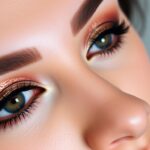
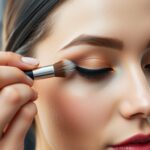
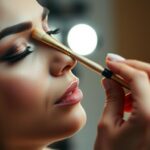
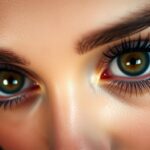


1 thought on “What Causes Dandruff & How to Prevent It”